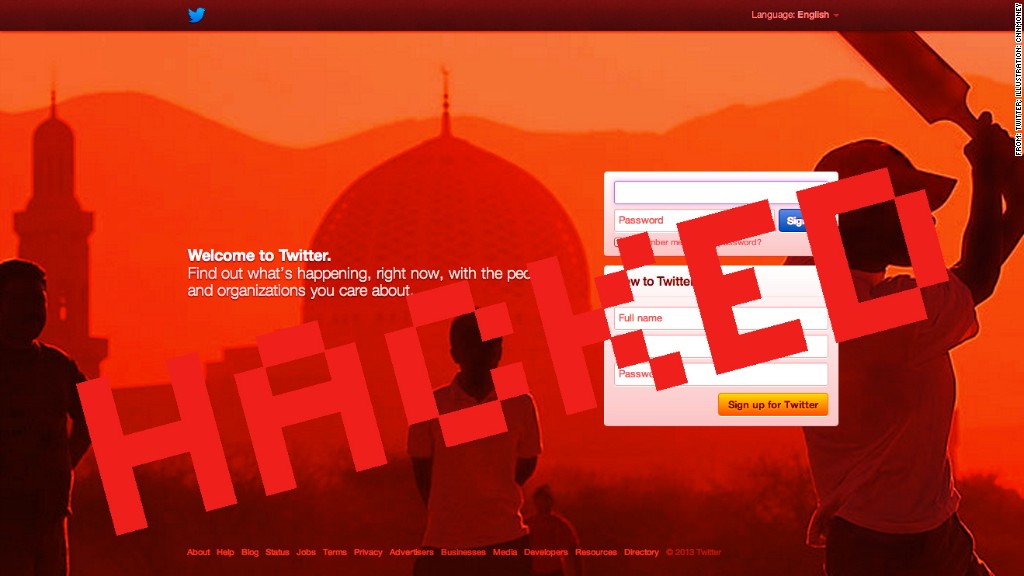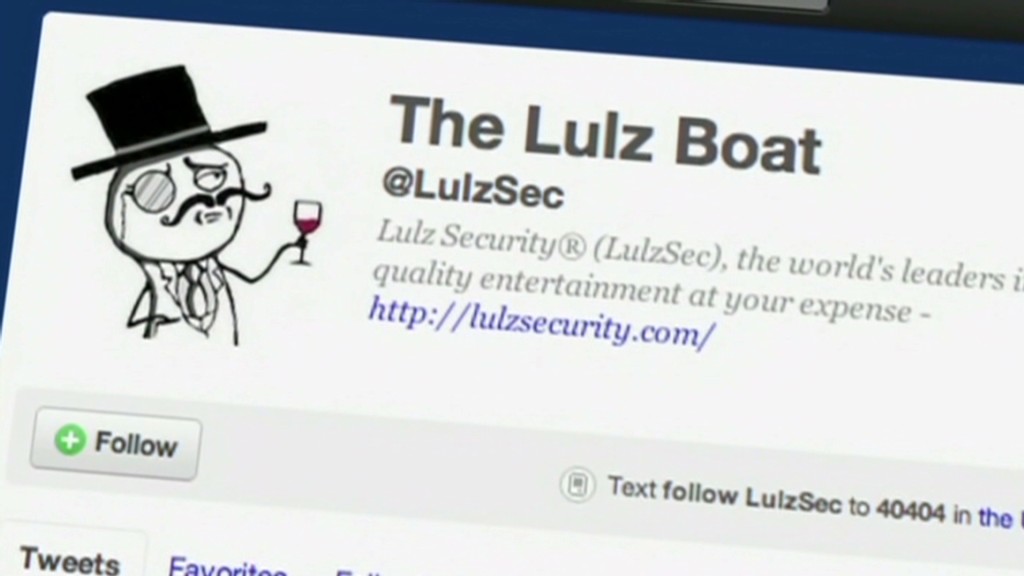
Worried your company's Twitter account is ripe for hacking? Rest easy, a new cybersecurity firm from San Francisco says it can stop attacks before they start.
This week's attack on the Associated Press Twitter account is the latest in a string of increasingly high-profile social media hijacking cases that has highlighted the vulnerability of all corporate social media accounts.
Devin Redmond, CEO and co-founder at Nexgate, formerly known as Social iQ Networks, told CNNMoney his technology would have thwarted the latest AP tweet before it was sent out, and would have done so immediately without human oversight.
Nexgate's clients include global banks, big pharma companies and media organizations that use the company's technology, ProfileLock, to secure their social media accounts, keeping hackers from sending out damaging messages and preventing alterations to user profiles.
ProfileLock takes a digital 'snapshot' of all the settings on a social media account, ensuring that if and when those account settings are changed, the system can automatically change them back and alert employees to the alterations.
Related: Find trending tunes with Twitter's #Music app
Of course, in the recent AP case, it was a false tweet about explosions in the White House that was so damaging, not any particular profile changes.
Still, Redmond says his company would have caught the tweet because ProfileLock would have recognized that it came directly through the Web interface for the AP's Twitter account, instead of via the news agency's approved social media publishing platform, SocialFlow.
"We would have caught that, we would have removed the content automatically and sent a notification to the owner," said Redmond.

Nexgate's technology not only helps companies dodge hackers, it also keeps them safe from embarrassing mishaps.
For example, a profane tweet accidentally sent by an employee through a corporate Facebook (FB) account would be caught and deleted immediately with Nexgate's SocialPatrol application, which monitors social media for profanity, bullying, pornography and other sensitive content.
"You really just want to put guardrails on there, so the moment something starts going off the tracks you can catch it and fix it," said Redmond. "We're there to deal with the next generation of social security challenges now that companies are so heavily invested in social media."
But not everyone believes that these kinds of technical solutions will be effective in the end.
"People are trying to react to a problem by throwing technology at it. But it's the people that are the problem," said Vikas Bhatia, a New York-based cyber risk adviser, who maintains that big companies must have more integration between their IT teams and marketing teams to ensure social media accounts are secure.

